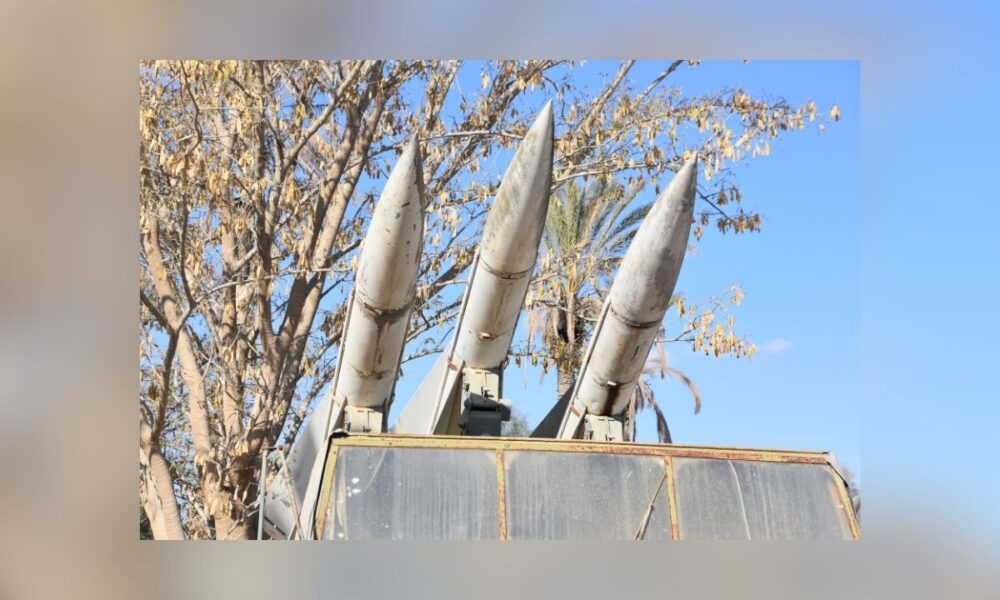Days after the United Nations reimposed sanctions on Iran’s nuclear and missile programs, the U.S. Department of the Treasury has moved to dismantle Tehran’s global weapons procurement networks — sanctioning 38 individuals and entities accused of helping the regime acquire missile technology, advanced electronics, and military aircraft.
Officials said the designations strike at supply chains operating across Iran, China, Hong Kong, Germany, Türkiye, Portugal, and Uruguay that funnel sensitive dual-use components, radar systems, and even a U.S.-made helicopter to Iran’s military.
“The Iranian regime’s support of terrorist proxies and its pursuit of nuclear weapons threatens the security of the Middle East, the United States and our allies around the world,” said Treasury Secretary Scott Bessent. “Under President Trump’s leadership, we will deny the regime weapons it would use to further its malign objectives.”
Targeting Iran’s Defense Supply Chains
The sanctions primarily hit procurement operations supporting Iran’s Ministry of Defense and Armed Forces Logistics (MODAFL), including missile producer Shahid Bakeri Industrial Group (SBIG) and electronics manufacturer Shiraz Electronics Industries (SEI). These entities build solid-fueled ballistic missiles and radar systems used in surface-to-air defenses — weaknesses exposed during the recent 12-Day War.
One of the sanctioned networks centers on Beh Joule Pars Commercial Engineering Company, which since 2017 has acquired gyroscopes, accelerometers, and other microelectromechanical systems for missile guidance. Founders Mehdi Farshchi and Mehdi Nili Ahmadabadi manage procurement through offices in Tehran and Isfahan.
Another network involves Khazra Communications Technology Solutions, a defense contractor sourcing U.S.-origin circuit boards for Iranian air-defense radars. Khazra works with several China-based partners, including Liu Baoxia — also known as Emily Liu — a longtime procurement agent wanted by the FBI for allegedly smuggling U.S. electronics to Iran. Liu was first sanctioned in 2017; her mother, Sun Zhaolan, and sister, Liu Baojuan, were newly sanctioned Sunday for continuing to provide material support.
Sanctions Extend to Helicopter Procurement
Treasury also sanctioned a transnational network supporting Iran Helicopter Support and Renewal Company (PANHA), which manufactures helicopters for the Islamic Revolutionary Guard Corps (IRGC), including Iranian-built clones of U.S.-made Bell helicopters.
One scheme involved Portugal-based Business United Unipessoal LDA, which purchased a U.S.-origin helicopter worth nearly €4 million for Iranian buyers. Related companies in Germany, Türkiye, and Uruguay also supplied helicopter parts and components to PANHA.
“Homeland Security Investigations (HSI) Chicago is proud to have played a critical role in identifying key members of the Iran-based procurement network designated today, which has enabled Iran’s ballistic-missile program and posed a significant threat to U.S. and global security. This action underscores HSI’s commitment to protecting national security and dismantling illicit supply chains that threaten international stability,” said HSI Chicago Special Agent in Charge Matthew J. Scarpino.
“The Federal Bureau of Investigation (FBI) alongside our federal partners will remain relentless in preventing weapons and dangerous assets from falling into the hands of foreign and domestic adversaries,” said Reuben Coleman, Acting Special Agent in Charge of the FBI Detroit Field Office. “I want to thank the dedicated members from our FBI Detroit Field Office, in close partnership with the U.S. Department of the Treasury – OFAC, for their tireless efforts in safeguarding our nation and protecting the American people from those who pose a threat to our nation.”
Broader U.S. Response
The sanctions freeze any U.S. assets belonging to the designated individuals and entities and prohibit Americans from engaging in transactions with them. Foreign banks could face secondary sanctions if they conduct significant business with those targeted.
Tuesday’s action was carried out under National Security Presidential Memorandum-2, directing federal agencies to counter Iran’s weapons programs and deny resources to the IRGC. The State Department simultaneously sanctioned five additional Iranian individuals and one entity for proliferation activities.
“The ultimate goal of sanctions is not to punish, but to bring about a positive change in behavior,” the department noted.
The complete list of the 38 individuals and entities that were sanctioned can be found here.


